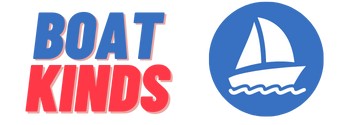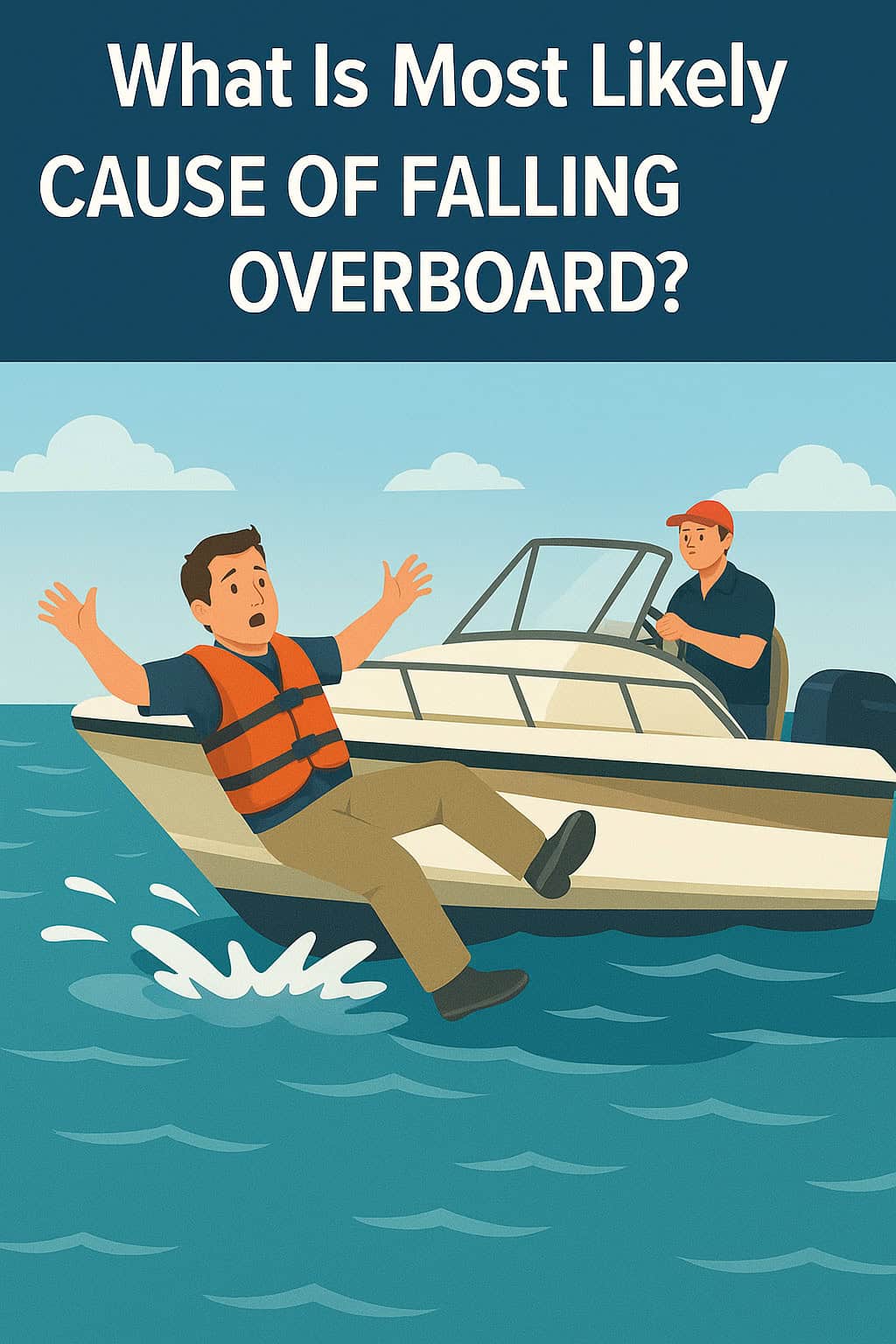Introduction to Overboard Accidents
What is most likely cause of falling overboard is something every boater should be aware of before leaving the dock. Falling overboard is one of the most dangerous and potentially fatal accidents that can happen on a boat. Whether you’re a passenger or a crew member, knowing what causes overboard incidents can help prevent them and save lives.
The dangers of falling into open water go far beyond just getting wet. Cold shock, panic, exhaustion, or even hypothermia can set in quickly—especially if you are not wearing a life jacket. That’s why learning what is most likely cause of falling overboard is key to prevention.
What Is Most Likely Cause of Falling Overboard and How to Prevent It?
What is most likely cause of falling overboard according to the U.S. Coast Guard and various boating safety organizations, is passengers or crew losing balance—often due to sudden boat movement, standing up too quickly, or leaning over the edge.
Primary causes based on boating incident reports show that alcohol consumption, lack of safety gear, and unpredictable waves significantly contribute to overboard accidents. Many of these could be prevented with simple behavioral changes.
How distraction and poor balance lead to accidents is seen especially during fishing or sightseeing. When people aren’t paying attention to their footing or try to multitask while standing, they become highly vulnerable.
The role of alcohol in overboard events cannot be overstated. Impaired judgment, slower reaction times, and reduced motor skills make alcohol one of the most dangerous contributors to boating accidents.
Common Scenarios That Lead to Overboard Accidents
Slippery decks and sudden boat movements are frequent culprits. Wet surfaces, especially fiberglass or aluminum, become hazardous when combined with boat rocking or sudden turns.
Fishing, leaning, or reaching over the side often causes a person to lose center balance. Many overboard cases involve anglers adjusting tackle or pulling fish without realizing how far they’ve leaned over the gunnel.
Nighttime boating and low visibility conditions increase the odds of someone stumbling or misjudging their step. Dim lighting, fatigue, and lack of handrails at night create a dangerous setting for falling overboard.
How to Avoid Falling Off a Boat
Safety habits for passengers and crew are your first defense. Everyone onboard should understand how to move around the boat, hold onto railings, and avoid sudden motions when the boat is underway.
Wearing non-slip footwear is a simple yet often overlooked measure. Shoes with proper grip dramatically reduce the chance of slipping on wet decks.
Staying seated in rough water is critical. When waves pick up or your boat hits wake, remaining seated helps maintain stability. This is especially important in smaller boats, where weight shift can be dangerous.
Boating Safety Tips for Overboard Prevention
Always wear a life jacket when underway. Even strong swimmers can be incapacitated by cold water or injury. Life jackets save lives in overboard scenarios.
Install railings or safety lines around walkways, swim platforms, and cockpits. These provide physical barriers and support when moving around.
Educate passengers about boat movement before setting off. Most overboard accidents happen because guests are unaware of how boats react to speed, turns, and waves.
What to Do If Someone Falls Overboard
What to do if someone falls overboard should be part of every boater’s safety training. The key is to act quickly but calmly. First, shout “Man Overboard!” to alert everyone, then designate someone to keep eyes on the person in the water at all times.
Man overboard procedures step-by-step begin with immediately throwing a flotation device toward the person, preferably a throwable PFD or ring buoy. At the same time, reduce throttle and begin turning the boat back toward them in a controlled arc.
How to retrieve and rescue a person in water depends on conditions. If they are conscious and responsive, extend a boat hook or rope. If unconscious, assign someone strong enough to physically assist with boarding. Never leave the helm unattended.
The importance of emergency drills and communication becomes clear in these moments. Practice man overboard drills regularly and make sure your VHF radio is on and functional, especially in areas without cellular coverage.
Understanding what is most likely cause of falling overboard ensures that every crew member is prepared to act fast during emergencies.
Life Jackets and Gear That Can Save Lives
Choosing the best life jackets for boaters is a non-negotiable part of safety. Look for USCG-approved PFDs that fit snugly and provide buoyancy even when unconscious. Inflatable options are lighter and more comfortable for continuous wear.
Throwables and floating rescue devices should always be within reach. Horseshoe buoys, throw ropes, and liferings are inexpensive and effective tools that make water rescue faster and safer.
How automatic PFDs work in overboard events is vital knowledge. These vests automatically inflate upon contact with water, offering immediate buoyancy even if the person is incapacitated or injured upon impact.
Real Stories and Lessons Learned
Overboard survival stories from the Coast Guard often highlight one thing: preparation saves lives. Survivors frequently credit wearing a life jacket, staying calm, and being spotted quickly as the main reasons they made it.
What went wrong and how it could be prevented is usually tied to ignoring basic precautions. No life jacket, no lookout, alcohol on board, or failure to brief guests—these small oversights become major when someone ends up in the water.
Many true survival stories begin with someone ignoring what is most likely cause of falling overboard, proving how critical prevention is.
Conclusion: Stay Smart, Stay Safe on the Water
Always be aware, alert, and equipped when boating. Recognizing risky behavior and environmental hazards ahead of time drastically lowers the chance of falling overboard.
Reinforce safety culture onboard every trip by having clear safety talks, assigning roles in case of emergency, and modeling the behavior you expect. Knowing what is most likely cause of falling overboard empowers you to take proactive steps that could save a life.
Knowing what is most likely cause of falling overboard will help you avoid the most common risks and stay safe on the water.

